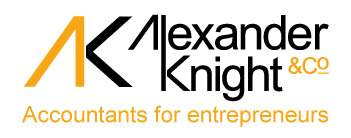In the first of our new series of client profiles entitled ‘A brew and a chat with…’ , we took a trip to the Stockport headquarters of one of the UK’s most innovative manufacturers.
Tucked away on an industrial estate in Bredbury is a business that experiencing huge international growth at the cutting edge of the competitive audio-visual industry.
How are they doing it?
In 1997, Aquavision pioneered in-wall and waterproof televisions.
Since making the world’s first waterproof television, the innovative team, led by managing director Alastair Benn, are now market leaders and have developed a vast network of professional partners worldwide.
It’s a real British success story lead by a man who started the business from humble beginnings in his own garage. Soon after making his first waterproof television, he won his first order for a hotel project and had the entire family assisting him in boxing and dispatching the televisions.
Alastair Benn continues to drive the team forward and remains instrumental in the development of new, innovative products.
“Today, with the support of our distributors and industry relations, the Aquavision brand is well established and successful. This fuels our passion to continue to produce high quality, luxury televisions. We never compromise on quality and this is why we remain the number one British manufacturer of in-wall and waterproof televisions. We work hard at maintaining this reputation and we’re proud of the work we’re doing here.”
Now operating from 10,000 sq. ft. premises, the business exports 50 per cent of its sales to almost every country in the world. Aquavision serves four core markets: bathrooms, custom integrations, hotels and the marine industry.
Products range from 16” to the massive 85” screens manufactured onsite by a team of specialists. The hardware and software in the televisions integrates with all the main manufacturers and the business is successfully developing partnership with top-end audio brand Bang & Olufsen.
And how are they coping with Brexit? Alastair, is pretty confident that all will be OK:
“We’ve not been affected at all by the Brexit decision or the recent general election. We’re still growing, we’ve got an international outlook to business and we’re certain our European and Worldwide partners will continue to do business with us as long as we maintain our innovation and customer service. The exchange rate has been great for our export market and we see no reason why any business which strives for innovation and has a global outlook can’t succeed.”
For more information about Aquavision visit www.aquavision.tv
If you want to feature in ‘A brew and a chat with…’ email alison@alexanderknightaccountants.co.uk


